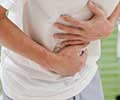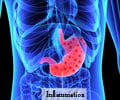- Gastroenteritis - (http://en.wikipedia.org/wiki/gastroenteritis)
- About Gastroenteritis - (http://www.nlm.nih.gov/medlineplus/gastroenteritis.html)
About
Gastroenteritis is a microbial infection that causes inflammation of the lining of stomach, small and large intestines. Diarrhea, vomiting, abdominal pain and abdominal cramps characterize gastroenteritis symptomatically. Gastroenteritis is also referred to as gastro, stomach bug, stomach virus, stomach flu and gastric flu.
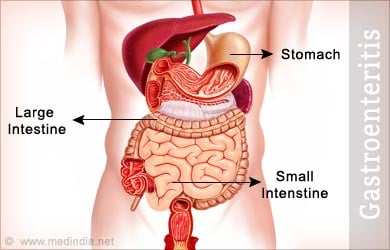
Viruses, mainly rotavirus and bacteria mainly E. coli, Shigella and Campylobacter account for most of the gastroenteritis infections in children. Although less common, protozoan parasites such as Giardia lamblia and Entamoeba histolytica also cause gastroenteritis, but mostly in children.
In adults, Norovirus and Campylobacter species are responsible for most of the gastroenteritis infections worldwide.
Symptoms of gastroenteritis are watery diarrhea and vomiting accompanied with abdominal cramps or pain in abdomen. Other symptoms like fever, chills, fatigue, headache and muscle pain may occur in isolated cases.
Dehydration is very common in gastroenteritis. Signs of dehydration include feeling of excessive thirst, dry skin, infrequent urination or very dark-colored urine, lethargy and tiredness, dizziness, or faintness. Infants, young children, old people, and people with weak immune system are at maximum risk of getting dehydrated.
Gastroenteritis is highly contagious and is transmitted from one person to another. The spread of viral gastroenteritis can be prevented by taking precautionary measures such as washing the hands thoroughly with soap and warm water for 20 seconds after using the toilet or changing diapers and always before eating or handling food.
Causes of Gastroenteritis
Viruses and bacteria cause most of the gastroenteritis infections. Although less common, protozoan parasites also cause gastroenteritis, but mostly in children.
Among viruses, Rotavirus, Norovirus, Adenovirus, and Astrovirus can cause viral gastroenteritis. While rotavirus accounts for the majority of gastroenteritis and diarrhea cases in children across the world, norovirus is the most common causative agent of gastroenteritis in adults.
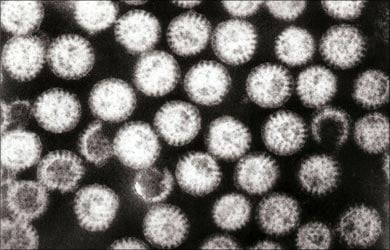
In young kids, bacterial infections account for 15–20% of all pediatric gastroenteritis cases, with E. coli, Salmonella , Shigella, and Campylobacter species being the most common causative agents. Among adults, Campylobacter species are the most common bacteria responsible for gastroenteritis. Toxicogenic Clostridium difficile is the most important cause of diarrhea and gastroenteritis in the elderly and senior citizens.
A number of parasitic protozoans also cause gastroenteritis especially in children, the most common being Giardia lamblia. Other species including Entamoeba histolytica and Cryptosporidium species have also been implicated with diarrhea and gastroenteritis in children.
Symptoms of Gastroenteritis
The key symptoms of gastroenteritis are watery diarrhea and vomiting, often accompanied with either abdominal cramps or abdominal pain. Other symptoms include fever, chills, fatigue, headache and muscle pain, which may or may not occur. In very rare cases, complications such as reactive arthritis (1%) or Guillain-Barre syndrome (0.1%) occur in people affected with Campylobacter infection.
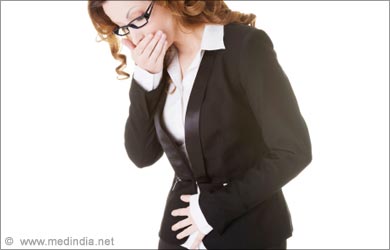
Haemolytic Uremic Syndrome (HUS), a potentially dangerous condition can occur in infections with E.coli or Shigella species that produces Shiga toxins. It causes a rapid fall in the platelet counts, kidney damage, and low red blood cell counts. Children are more likely to get complications like HUS than adults.
What are the Signs of Gastroenteritis to Look Out For?
- Cramping and Pain in the Abdomen
- Diarrhea
- Fever
- Nausea and Vomiting
- Loss of Appetite
- Dehydration
- Headache
- Muscle Pain
Diagnosis of Gastroenteritis
Gastroenteritis is often clinically diagnosed on the basis of the signs and symptoms alone. However, a stool test, usually a stool culture, is recommended to find the exact causative organism for the diarrhea and to rule out any poisoning by toxic bacteria or parasites.
In case of severe dehydration, electrolytes and kidney function tests are also performed as precautionary measures to rule out complications such as Haemolytic Uremic Syndrome.
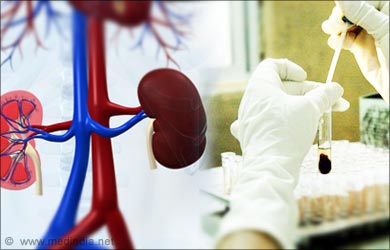
Treatment of Gastroenteritis
Viral gastroenteritis mostly settles down within 2-3 days without any specific treatment. However, antiemetics such as ondansetron, metoclopramide or domperidone are used to treat severe bouts of vomiting and antimotility agents such as loperamide and/or bismuth subsalicylate are used to control diarrhea. Butylscopolamine is prescribed in treating abdominal pain. Antibiotics are prescribed only in case the cause of gastroenteritis has been confirmed as bacteria or a parasitic protozoan.
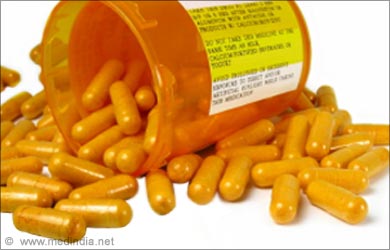
Diet for Gastroenteritis
The following dietary measures could be taken to prevent dehydration and help relieve the symptoms of gastroenteritis:
- Drink plenty of liquids such as fruit juices, tender coconut water, caffeine-free sports drinks, and broths to replace fluids and electrolytes.
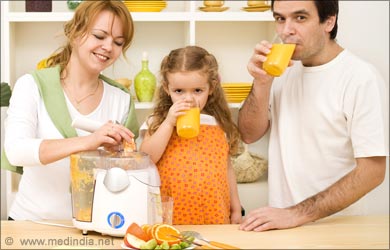
- Take Oral Rehydration Solutions such as Electral to prevent dehydration.
- Sip small amounts of water or suck ice chips if severe vomiting persists.
- Take mild-salted liquid broth of made of arrowroot along with fruit juices and tender-coconut water if diarrhea persists.
- Avoid fatty or oily foods, sweets and chocolates, dairy products, caffeine, and alcohol.
- Reintroduce food gradually, starting with soft, bland, easy-to-digest foods such as soft-rice, idly, potatoes, bread-toasts, cereals, applesauce, and bananas.
- Take plenty of rest.
Prevention of Gastroenteritis
The following precautions may be taken to prevent the spread of infection:
- Wash the hands thoroughly with soap and warm water for 20 seconds after gardening, after going to the toilet or after changing diapers and always before eating, handling or preparing food.
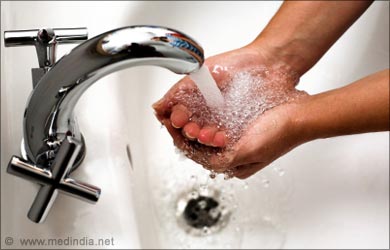
- Clean the toilet, including the seat and handle, with disinfectant after each bout of vomiting or diarrhea.
- Keep the surroundings clean and regularly disinfect the tabletops, door handles, computers / laptops and other common surfaces.
- Do not sharing towels, cutlery and utensils with other household members, if a member is infected.
- Take adequate rest and do not return to work even after 48 hours of recovery.

- Ensure that the drinking water is properly filtered and boiled or treated with UV.
- Regularly wash the hands, the surfaces, and utensils with hot, soapy water, before preparing any food.
- Never store raw and cooked foods together.
- Always cook food thoroughly.
- Avoid eating food at roadside stalls or places where there is an unknown water source.
- Do not consume pre-cut fruits sold on the streets. Ensure that the fruits are cut and peeled on your own, and if need to be consumed later, are stored in a well-washed vessel in refrigerator.
- Remove shoes outside the house, if you have walked in puddles or rain water, especially in monsoons. You can avoid carrying bacteria from the stagnant puddles into the home.

